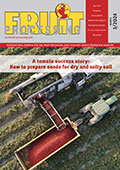Building upon the successful partnership established in 2022 (with the aim to produce the first heat exchanger made with fossil-free steel) Alfa Laval will now incorporate SSAB’s unique fossil carbon emission free and recycled steel (SSAB Zero™), into its heat exchangers. This represents an important milestone towards achieving a global carbon neutral supply chain.
Key highlights:
- Tackling global carbon emissions: Steel production accounts for 7 percent of the world’s carbon emissions, making it a critical industry in the fight against climate change. The collaboration between Alfa Laval and SSAB aims to address this challenge, with emissions being predominantly generated from a limited number of locations.
- Reducing carbon footprint: By integrating SSAB’s fossil carbon emission free, recycled steel, produced through renewable-based processes, into Alfa Laval’s heat exchangers, the collaboration takes an important step towards achieving a global carbon neutral supply chain.
- Double impact on global emissions: Initially more than 100 heat exchangers will be delivered this year – and significantly more the coming years. These heat exchangers will be deployed to improve energy efficiency in numerous areas such as HVAC, marine, process and food industries.
“Alfa Laval’s commitment to sustainability is further strengthened through our collaboration with SSAB,” says Thomas Møller, President of the Energy Division at Alfa Laval. “By incorporating their recycled steel in our heat exchangers, we are not only reducing our own carbon footprint but also driving the entire value chain towards a cleaner and more sustainable future.”
”SSAB is really accelerating the roll-out of zero-emission steel with our newest product SSAB Zero,” says Thomas Hörnfeldt, Head of Sustainable Business at SSAB. “We are now expanding our partnership with Alfa Laval to include SSAB Zero, and can look forward to visible results already this year. This is great news, and also allows us to help mitigate climate change even faster.”
…and will contribute to protect 17,872 hectares of forest in the Amazon area annually
The Eckes-Granini Group with all its subsidiaries will operate climate neutral throughout Europe as of January 1, 2021. Europe-wide, the Group emitted 43,082 tons of carbon into the atmosphere in 2019 – caused, among other things, by energy and heating, waste processing, employee commuting and business trips. This is the result of a profound analysis of the companies’ carbon footprint in cooperation with ClimatePartner. The solution provider of climate action for companies has been supporting the leading supplier of fruit juices and fruit beverages since this year. With regard to the fight against climate change, the Eckes-Granini Group strives for zero greenhouse gas emissions. In order to get much closer to this overall goal, the Group will offset 43,000 tons carbon emissions of its direct business activities through a carbon offset project conducted by ClimatePartner in Portel, Brazil. Thereby, Eckes-Granini ensures the protection of 17,872 hectares of forest in the Amazon region per year.
Eckes-Granini carbon offset project protects Brazilian primeval forest
Eckes-Granini offsets its emissions by supporting a forest protection project in Portel, in the Brazilian state of Pará. The project protects a total of 151,105 hectares of forest each year. It also provides alternative sources of income and education for the residents of Portel, e.g. through the cultivation of pepper or the training of forest rangers.
Commitment to climate action across Europe
The German subsidiary of Eckes-Granini (hohes C, granini) has already been climate neutral since 2019. This is a great success that was achieved through the implementation of numerous climate protection measures. These include the modernization of facilities, the purchase of green electricity and the reduction of fuel consumption in the logistics fleet. As of January 2021, the entire carbon footprint of all eleven European subsidiaries will be offset.
About ClimatePartner
ClimatePartner is a solution provider of climate action for companies. ClimatePartner combines individual consulting with cloud-based software that is unique on the market. Customers can use it to calculate and reduce carbon emissions and compensate for unavoidable emissions. In this way, products and companies become climate neutral, which is confirmed by the ClimatePartner label. ClimatePartner offers carbon offset projects in different regions and with different technologies and standards. The additional social effects of the projects are particularly important: The 17 goals for sustainable development of the United Nations, the SDGs, are the benchmark here. ClimatePartner was founded in Munich in 2006 and today has more than 100 employees in Munich, Berlin, Essen, Vienna, Zurich and Yerevan and cooperates with more than 2,500 companies in 35 countries.









